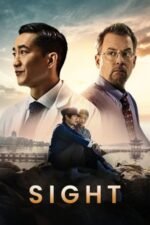The Ghosts We Carry: Exploring Trauma’s Echo in Cinema
There's something profoundly unsettling about a story that digs deep – not just into plot, but into the raw, often unspoken wounds of childhood. It’s a theme filmmakers return to again and again because it’s universal; we all carry baggage from our formative years, whether consciously or buried beneath layers of coping mechanisms. And cinema, at its best, can offer us a safe space to confront those echoes.
What I find fascinating is how differently directors approach this weighty subject. Take Sight, for example. It's ostensibly about restoring physical sight, but the film’s true power lies in Wang’s confrontation with the Cultural Revolution – a trauma that shaped his entire being. The act of giving sight to an orphaned girl becomes inextricably linked to him confronting his own past, demonstrating how deeply personal and generational trauma can be. It's not about dwelling on the horror itself, but understanding its impact on resilience and compassion.
Then you have something like Bad Bear, which takes a far more psychological route. The blurring of reality and imagination, the sinister teddy bear… it’s a visceral exploration of how unprocessed childhood trauma can manifest in unsettling ways as an adult. It taps into that primal fear – the feeling that something comforting from your past has turned against you. I remember seeing this with a friend who confessed she'd always felt slightly uneasy around her own childhood stuffed animals; it just resonated on such a deep, subconscious level.
Fréwaka, with its blend of folklore and psychological suspense, offers another intriguing perspective. The agoraphobic woman’s fear isn’t simply about supernatural beings; it’s rooted in a trauma that has isolated her from the world. The film cleverly uses the ambiguity of the Na Sídhe to represent the intangible nature of trauma – something both terrifying and difficult to define.
And films like Girl on the Edge and Bethany highlight the long, arduous journey towards healing. They don’t offer easy answers or neat resolutions; instead, they portray the messy, nonlinear process of confronting painful memories and finding a path forward. They remind us that recovery isn't about erasing the past, but integrating it into our present selves.
Ultimately, films exploring traumatic childhood aren't always "pleasant" viewing – and they shouldn’t be. They are challenging, often uncomfortable, but ultimately rewarding because they offer profound insights into the human condition. They remind us that we are all shaped by our experiences, and that even in the darkest of times, there is the potential for growth, understanding, and perhaps, a fragile kind of hope.
What films have you seen that explore this theme particularly well? I’d love to hear your thoughts!




































